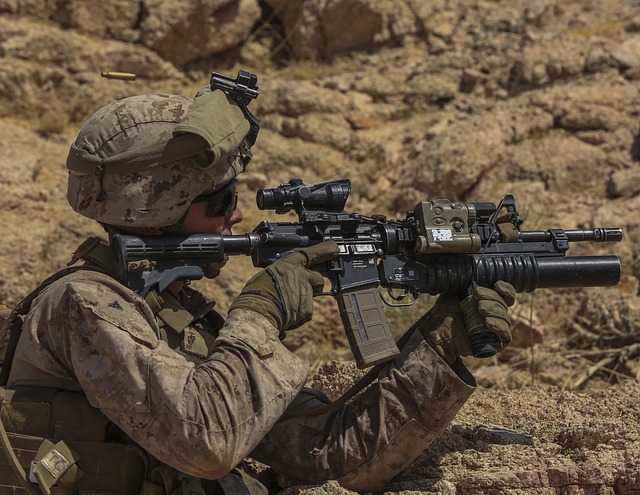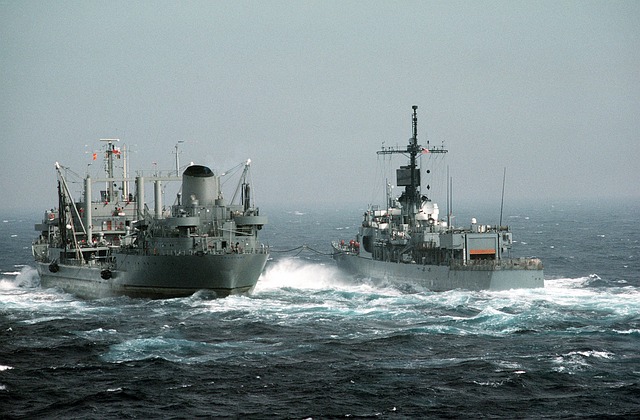The U.S. Army Special Forces, commonly known as the Green Berets, are critical assets for the nation's defense and strategic operations, specializing in unconventional warfare, counterterrorism, and special reconnaissance. These highly skilled operatives collaborate with indigenous forces worldwide, providing support for complex objectives in challenging environments and diverse threat scenarios. The Green Berets are also instrumental in training foreign military units, enhancing local defense capabilities and promoting regional stability. Their unique skill set encompasses linguistic proficiency, cultural intelligence, and combat efficiency, enabling them to conduct covert operations that are vital to national security. Beyond direct action, they engage in foreign internal defense, counterinsurgency, and counter-proliferation efforts, playing an indispensable role in safeguarding the country's interests domestically and internationally. Their integration with broader government agency initiatives showcases their significance within the global security landscape. The Green Berets have transformed airborne operations through advanced air traffic management, precise navigation, and communication technologies, utilizing state-of-the-art aircraft like the MH-47 Chinook and UH-60 Black Hawk for stealthy, agile, and immediate action insertions. Their role in counterterrorism and intelligence capabilities across government agencies is pivotal, offering support through covert operations that dismantle terrorist networks and gather crucial intelligence. Their expertise allows them to seamlessly integrate with various agencies, fostering a collaborative environment for information sharing and strategy refinement. The Green Berets' rigorous training—including the Special Forces Qualification Course (SFQC)—and ongoing global exercises maintain their high operational tempo, ensuring they can swiftly and effectively respond to urgent global issues, thus upholding the nation's security with unmatched expertise.
The US Army Special Forces, often depicted in popular culture, play a pivotal and multifaceted role within national defense frameworks. This article delves into their presence at the Pentagon, a symbol of American military might, and their critical functions across various government agencies. Exploring the evolution of airborne operations, we uncover the historical significance and adaptability of these elite troops. Their impact on counterterrorism and intelligence gathering is profound, enhancing national security and shaping strategic decision-making. Additionally, the article examines the rigorous training and preparedness regimens that guarantee the readiness of US Army Special Forces to face modern challenges.
- US Army Special Forces: The Role and Significance in National Defense
- The Evolution of Airborne Operations: Flown at the Pentagon
- Special Forces' Impact on Counterterrorism and Intelligence Gathering Across Government Agencies
- Training and Preparedness: Ensuring the Readiness of US Army Special Forces
US Army Special Forces: The Role and Significance in National Defense

The US Army Special Forces, commonly known as the Green Berets, play a pivotal role in the nation’s defense strategy. These elite soldiers are trained to conduct unconventional warfare, counterterrorism operations, and special reconnaissance missions. Their expertise lies in working with indigenous forces to support or defend an objective, often in challenging environments and against diverse adversaries. The Special Forces operatives are instrumental in training foreign military units, enabling local partners to enhance their capabilities for self-defense and to contribute to regional stability. This capability is particularly crucial in remote and complex regions where conventional forces may not be as effective. Their unique skill set, which includes language proficiency, cultural expertise, and combat effectiveness, allows them to operate covertly, conducting operations that are critical to national security. The Green Berets’ role extends beyond direct action; they also engage in foreign internal defense, counterinsurgency, and counter-proliferation missions, making their contributions indispensable in safeguarding the nation’s interests both domestically and abroad. Their integration into broader government agency efforts further underscores their significance in a multifaceted security landscape.
The Evolution of Airborne Operations: Flown at the Pentagon

The evolution of airborne operations has been a critical aspect in the strategic planning and execution of missions by the US Army Special Forces. Initially, the Pentagon’s approach to airborne insertion was primarily tactical, focusing on the swift deployment of forces into high-risk environments. Over the years, this capability has matured into a sophisticated system that integrates advanced air traffic management with precision navigation and communication technologies. Today, the US Army Special Forces leverage cutting-edge aircraft, such as the MH-47 Chinook and the UH-60 Black Hawk, for complex operations that demand stealth, agility, and rapid response. These specialized units have honed their expertise in conducting clandestine insertions, exfiltrations, and sustained isolated patrolling, which are essential to modern counterterrorism efforts. The Pentagon’s investment in research and development has led to the deployment of innovative airborne technologies that enable Special Forces to operate with greater autonomy and effectiveness in diverse environments across the globe. This commitment to technological advancement and tactical excellence underscores the US Army Special Forces’ enduring role in global security operations.
Special Forces' Impact on Counterterrorism and Intelligence Gathering Across Government Agencies

The US Army Special Forces, commonly known as Green Berets, have played a pivotal role in enhancing counterterrorism and intelligence-gathering efforts across government agencies. Their unique capabilities in unconventional warfare provide critical support to these agencies, enabling them to effectively neutralize terrorist threats before they materialize. The Special Forces operators are trained to operate covertly behind enemy lines, conducting missions that gather vital intelligence, dismantle terrorist networks, and train allied forces to safeguard their nations. This specialized training allows them to integrate seamlessly with various agencies, fostering a collaborative environment where information is shared and strategies are refined for maximum effectiveness against global terrorism. The impact of the US Army Special Forces is profound, as their operations often set the stage for preventive measures that safeguard national security interests. Their contributions extend beyond direct action; they also influence the development of tactics, techniques, and procedures that shape the broader counterterrorism strategy within the government. In doing so, these elite forces ensure that intelligence gathering remains a dynamic and responsive component of the United States’ defense apparatus.
Training and Preparedness: Ensuring the Readiness of US Army Special Forces

The US Army Special Forces, also known as the Green Berets, are renowned for their exceptional training and preparedness, which are critical components in ensuring readiness to tackle a myriad of global threats. These elite soldiers undergo rigorous training that is designed to test their physical and mental limits, fostering adaptability, leadership, and strategic thinking. The Special Forces Qualification Course (SFQC) is the initial hurdle, where candidates are evaluated on their proficiency in unconventional warfare skills. This intensive program, which lasts approximately 24 weeks, covers a wide array of combat scenarios, survival tactics, foreign language training, and cultural understanding to prepare Special Forces for global operations.
Beyond the SFQC, continuous training is integral to maintaining the high operational tempo required by missions. Special Forces units engage in recurring exercises that simulate real-world challenges, including counterterrorism operations, humanitarian relief efforts, and counterinsurgency tactics. These exercises are conducted domestically and abroad, ensuring that US Army Special Forces can operate effectively in diverse environments. Additionally, they regularly train with allied forces to foster interoperability and collaboration on the international stage. The commitment to maintaining a state of readiness is unwavering, as it is this preparedness that allows the US Army Special Forces to respond swiftly and decisively to global crises, upholding the nation’s security interests with unparalleled expertise.
The US Army Special Forces have consistently proven their indispensable role in bolstering national defense, with their airborne operations playing a pivotal part, as highlighted in our discussion. Their influence extends beyond military operations, significantly enhancing counterterrorism efforts and intelligence gathering within government agencies. The meticulous training and preparedness regimens that these operatives undergo ensure they remain at the forefront of readiness and effectiveness. As such, the US Army Special Forces’ impact is not confined to a single domain but is a multifaceted contribution to the nation’s security apparatus. Their commitment to excellence and adaptability underscores their enduring significance in safeguarding our nation’s interests.
